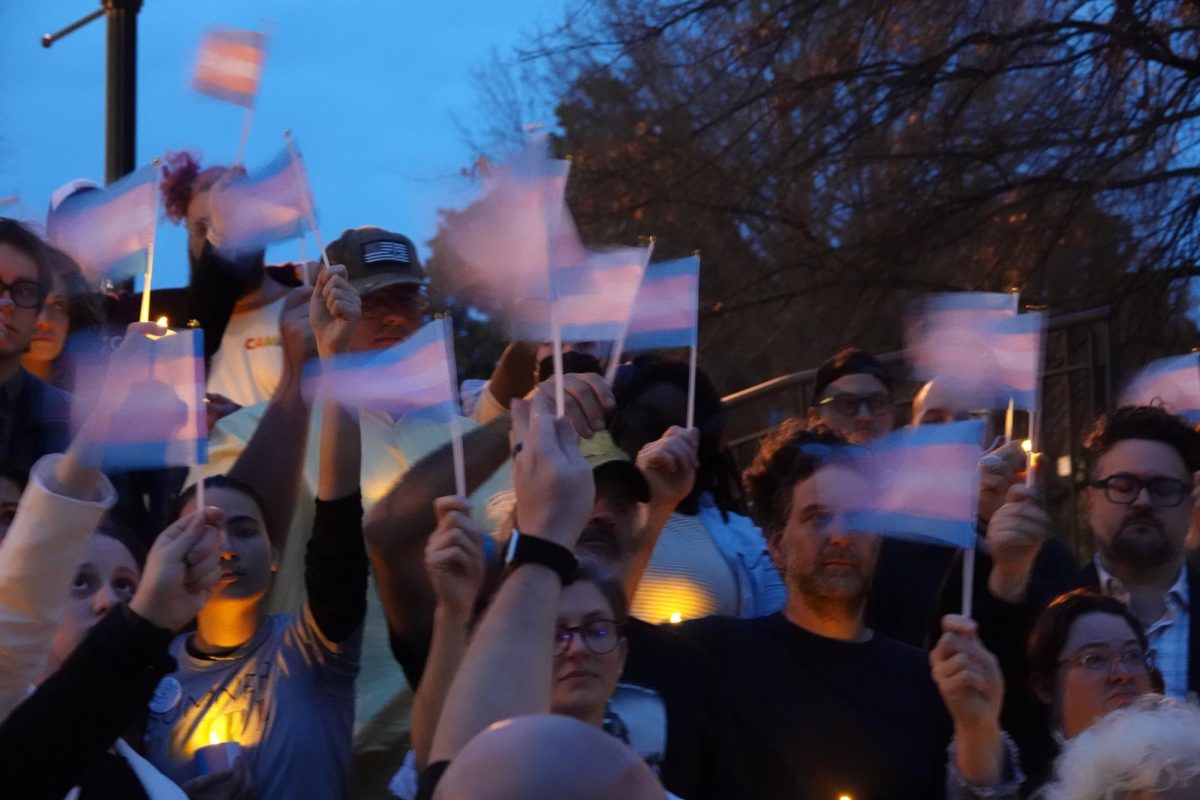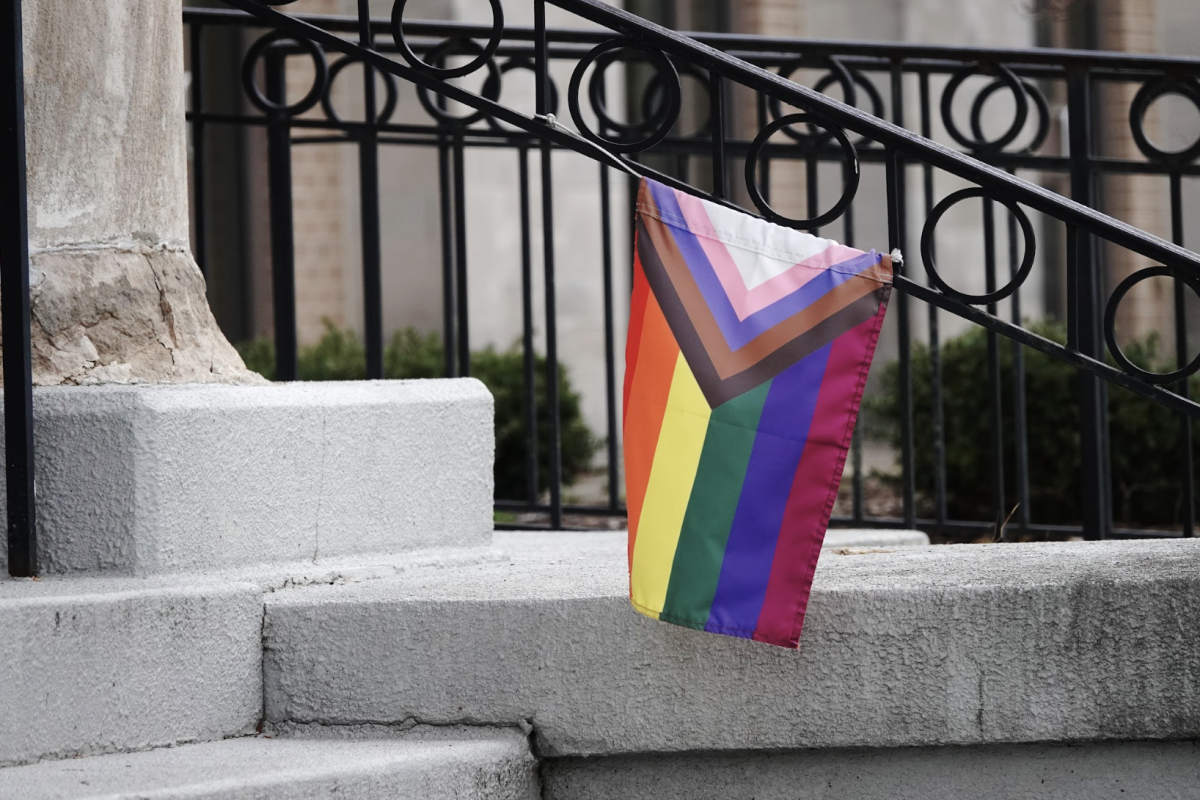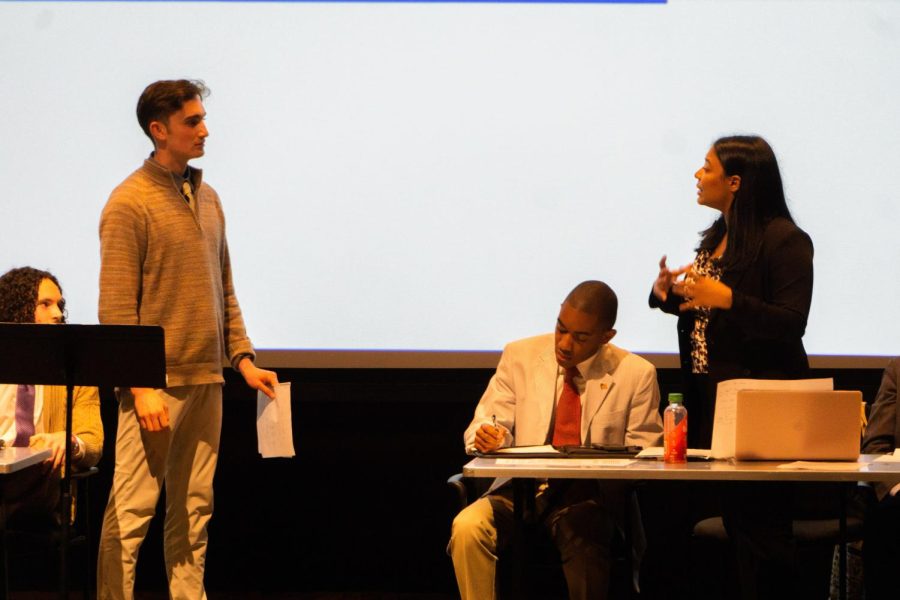Editor’s note: This piece contains mention of anti-trans violence.
The Tennessee Equality Project hosted a vigil for 16-year-old Indigenous transgender Oklahoma student Nex Benedict on Feb. 27 at Ida B. Wells Plaza in downtown Nashville. Approximately 30 Vanderbilt students and community members held pride and trans pride flags and candles as various speakers took to the microphone to mourn Benedict’s “unjust” death and call for stronger protections for the trans and non-binary community.
The vigil began with words from TEP Education Manager Jace Wilder, also an M.P.H. candidate at Vanderbilt University School of Medicine, who expressed his frustration over the “awful tragedy” of Benedict’s passing.
“I am very angry today. I feel as if the world is still betraying Nex over and over and over again by denying him his right to his identity, by denying him his words, by denying him his justice,” Wilder said.
Benedict sustained injuries, including head trauma, during a fight in his school’s girls’ bathroom on Feb. 7. The following day, he collapsed at home and was taken to the hospital, where he was pronounced dead. In a Feb. 21 statement, Owasso, Okla. police said Benedict’s death was not trauma-induced, according to preliminary autopsy results, though the fight itself has not been ruled out as his cause of death. Toxicology results and an official autopsy report have yet to be released.
Wilder added that they and others in the trans and nonbinary community are “terrified,” calling for greater protections and justice.
“I could be next. I could have been him. All of us could have been him. And in some circumstances, we have been him,” Wilder said. “Today we share that grief as an opportunity for us all to do better.”
Wilder concluded by reading a letter addressed to Benedict, calling him a “bright force and light” and promising to continue the fight for his justice.
“I will not say ‘rest in power,’ Nex, because there is nothing empowering about what happened to you. You were not a martyr — you were a child. Your power has always been, as you have survived so much, and your power is yours to keep,” Wilder said.
Dahron Johnson, a community chaplain and TEP Davidson County committee co-chair, led the crowd in a moment of prayer, distinguishing her “thoughts and prayers” from the “trite” manner in which the phrase is typically used.
“‘Let us pray’ is not simply the remembrance of a life, nor is it the joys and the words contained there. It is certainly those things, empirical things for them,” Johnson said. “Beyond this, though, ‘let us pray’ is the way we listen to that life.”
Tennessee’s ‘slate of hate’
The vigil took place immediately after the Tennessee House Criminal Justice Committee meeting, during which TEP protested a new bathroom bill that would deny Tennessee businesses the ability to set their own bathroom access rules. The House passed a bill the day prior that bans the display of pride flags and ideological flags in Tennessee’s public schools.
Krista Westervelt, a student minister at the First Unitarian Universalist Church of Nashville and M.T.S. student at Vanderbilt Divinity School, criticized legislators for “fueling a culture of death.” She is also a facilitator of a grief support group for the LGBTQIA+ community.
“They hold in their hands, their pens and their gavels the power to set things right,” Westervelt said. “They hasten to heap injustice upon injustice, oiling the heartless, soulless machinery of oppression with the blood of those who dare to live their lives as their full and beautiful souls.”
Westervelt also criticized the application of Elisabeth Kübler-Ross’ five stages of grief — denial, anger, bargaining, depression and acceptance — to those who are grieving, explaining that the framework was developed to describe individuals’ journeys with their own mortality, not that of others.
“No, we will not accept Nex’s death. We will not accept our deaths. We will not accept legislation that harms where it should heal,” Westervelt said.
American University first-year and TEP queer youth advocate Eli Givens referenced similar anti-trans legislation that had been passed in Oklahoma prior to Benedict’s death. In May 2022, Oklahoma Gov. Kevin Stitt passed a bathroom bill requiring students to use restrooms aligning with the sex listed on their birth certificates. They further called attention to the 54 anti-LGBTQ+ bills being tracked in Oklahoma and 34 in Tennessee since the beginning of the 2024 legislative session.
“Why don’t these supposed Christian values include the protection of kids that lie outside the norm — children who aren’t white, children who don’t align with their sex assigned at birth, children whose families don’t look a particular way?” Givens said.
Jordan Works, chair of the Middle Tennessee Transgender Alliance and board member for Nashville Pride, concluded the vigil by leading the crowd in chants for Benedict, followed by a moment of silence.
“We are who we are. We are each others’ best advocates, and we need to lean on each other. We need to be that safe space for our trans youth — we need to educate, we need to be that force,” Works said. “I want to encourage you to also be the best version of yourself. While we’re angry, just don’t forget to rise above.”
Community reactions
MaxZine Weinstein, a Nashville community member, expressed their “rage and sadness” toward Benedict’s death and spoke to the juxtaposition of the vigil with the Tennessee State House looming in the background.
“[I’m] standing in front of the legislature and thinking about the cruelty of this Republican supermajority that, instead of having compassion for people, has so much hate in their hearts,” Weinstein said to The Hustler.
Wilder expressed appreciation for the way in which the community came together to extend support and love to one another. They also drew a line between free speech and hate speech, saying the former has gone “too far” when it endangers human life.
“Free speech, no matter how free it is, has consequences. Whenever that free speech incites violence onto other people or incites violence onto anyone for that matter, then we are crossing a line,” Wilder said. “Once that consequence costs someone’s life, or even costs the quality of their life, we’re going too far.”







